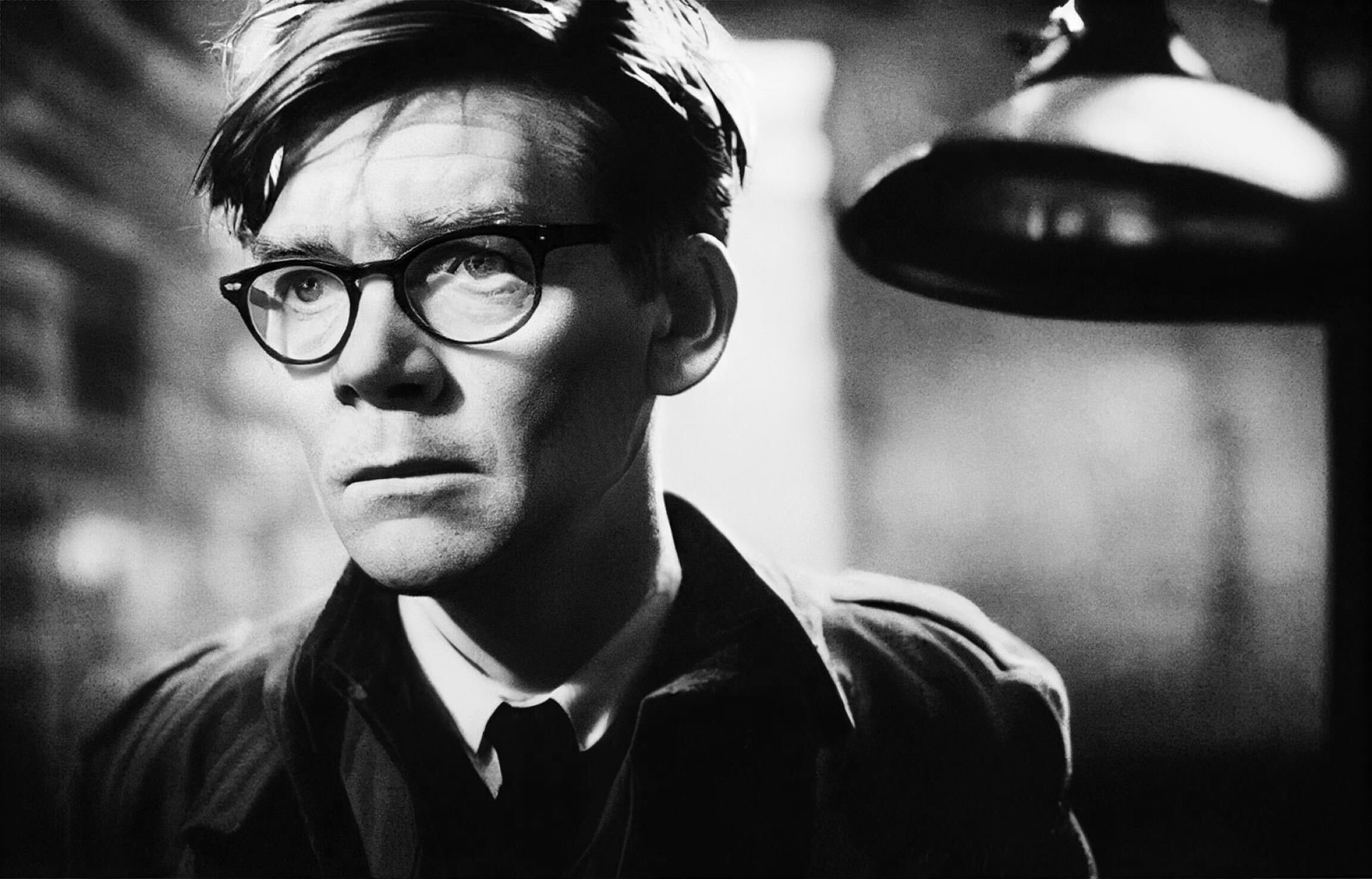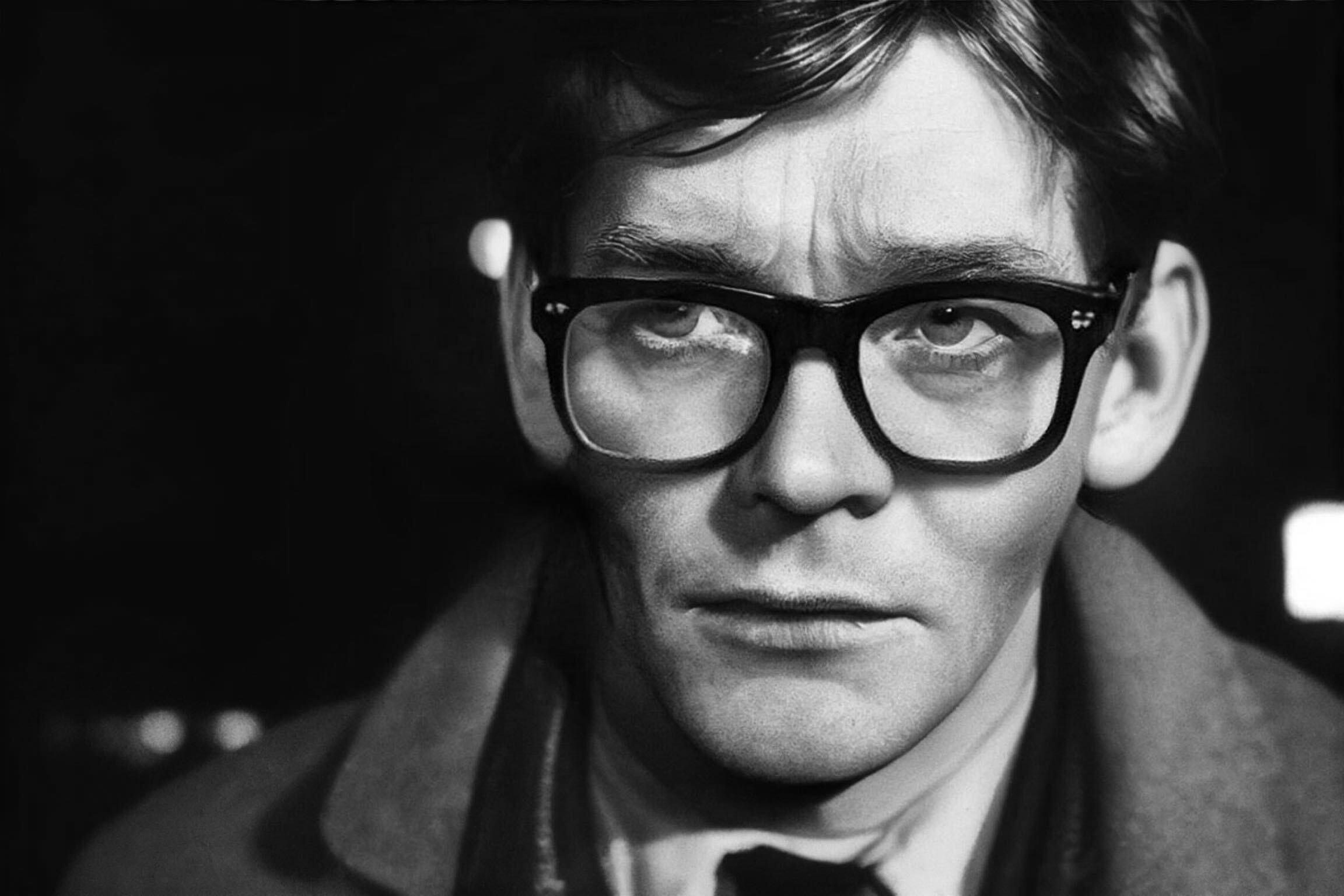When Work Stops Being The Work
Programming Note: While I write literally all day at work - emails, slack messages, whiteboards and more, I haven’t actually sat down and truly written anything in many years. Encouraged by my wife, Mary, to start sharing some of the stories of my life, especially with our daughter, Emma, I’m going to take on the challenge of writing down as much as I can remember about the moments which have been important to me along the way.
Emma, I hope one day you’ll read and enjoy these as much as I’ve enjoyed remembering them.
They say the best moments in reading are when you come across a thought, a way of thinking about the world, that you felt was somehow unique to you. But here it is, set down by someone else, perhaps someone long dead. And it’s as if a hand has come out of the book, and taken yours. It’s a thought of Alan Bennett’s that’s not unique to me, but I’ve always thought about it, long after I first heard it in one of his plays. I think the same is true of conversations. Those beautiful, serendipitous moments where someone else, often someone completely unexpected, says the thing that’s been in your head all along, and these are especially potent at work.
I recently had lunch with a close work colleague, who I’d always admired for her drive, her smarts, and her sheer grit to overcome obstacles and simply get things done. She’s very much the dictionary definition of a doer, both in professional life, and in real life. She holds a senior leadership role, and in her downtime travels the world. Many of our conversations over the years have been about the business, and what we can do together to grow it, or solve for some particularly gnarly problem. But the recent lunch I had with her was very different. Gone was the formal attire and the immaculately, enviously straightened hair. Here instead was a sun-kissed complexion, wide smile, flowing beach print dress, and hair that’d come straight from the beach. For the first time, and finally, I really felt as if she’d brought her authentic self to work. No corporate veneer, no vice presidential masking, just me and her, chatting over our salads.
We talked about a lot of things, but what we didn’t talk about was work. We talked about her adventures learning to scuba dive. Her road trips past and future. And her plans for next year. Something had happened between our last conversation where her relationship to work had changed, and become exponentially better for her. She was happy, optimistic, hopeful for the future, and energized by everything she was doing in life that wasn’t work. For someone who’d spent most of their adult life deliberately and purposefully building a truly successful career, it finally seemed that she’d arrived at a place where work was supporting a life, and not life supporting a career.
In her I saw strong echoes from my own story. Ever since I left education in 1998, I’ve been working without any material break. Building a twenty five year career that’s taken me from an entry-level design role for QVC in London to Head of Product for NBC News in New York. There’ve been long nights and weekends worked, as well as the stressors, joys, twists and turns of working with others. And like my colleague, a slow, deliberate, cumulative building of a professional life. My work has led me to meet some incredible people, travel the world, and I’ve truly had some exceptional opportunities to be a part of some amazing projects. My job interview for QVC in Philadelphia was the day before 9/11. I worked for a real estate brokerage during the housing crisis of 2008. I was in The New York Times newsroom when Trump won in 2016. I’ve felt the hand of history in these moments, and have had the most wonderful ride so far, for which I will always be grateful to those who laid those opportunities in front of me.
Work brought me to America, where I met the girl of my dreams, married her, and raised a family. Work has been the economic force behind some amazing vacations, financial stability, and memorable holidays. And perhaps most importantly, and for me completely unexpectedly, it’s given me the opportunity to grow others. To be the one laying the track for those I work with. Not just for them to learn from my mistakes, of which there are hundreds, but for them to have the space and time to do their own best work. I never thought this would be as rewarding as it’s become in my professional career, but when it shows up, it’s truly the greatest professional feeling one could ever hope for. To see someone on your team grow beyond what you can do for them. To see them fail, get back up, and be even stronger the next time. And for them to learn, build resilience, cast off their anxieties, and look back on just how far they’ve come. To be a small piece of someone else’s journey has been an incredible reward that I could never have seen coming twenty five years ago.
The past few years of the pandemic have changed the meaning of work in many of our lives. Certainly the role it plays in our overall welfare, and how a relationship to that which pays the bills is now different from the more immediate things which happen at home. But as return to office policies struggle for acceptance, and the hollow nostalgic pull of recapturing a working culture which has long since moved on, we now live in an era of quiet quitting, great resignations, and employment marketplaces where the dynamics of those looking for roles have significantly more bargaining power than those looking to fill them. It still feels like an odd things to say, but the pandemic has been incredibly healthy for me personally. I went back to school, enrolling as an undergraduate at The University of Pennsylvania, and now in my sophomore year, majoring in Ancient Religious Cultures. I worked on a multitude of personal creative projects. I lost 60 pounds. I wrote, a lot. And I read all the books and watched all the movies I’d perpetually been putting off. The culmination of this is a large-scale artificial intelligence and machine learning world-building project which is coming together really nicely and likely to launch in the new year. Looking back, it really is something when you get those 10 hours of commuting back each week.
But it’s something bigger than just the indulgence of creative projects, the challenge of being back in education, and the time and space to learn new things. All of it has been going on in addition to a very busy full-time job. A job I love, with people I am energized to work with each day, and challenges that are as big as they are exciting. But something changed during the pandemic. My relationship to work itself changed. What I’d previously held onto as a source of worth in life, the perpetual cheese of professional accomplishment, had been replaced by something else. Something I felt guilty thinking about during work hours. Something that was more energizing, because it was truly mine. It was my academic journey. My creative projects. My path. I was working harder and longer than ever, but in a different place than I’d been for twenty five years. I was working on me. Work as I’d thought about it in the past, had stopped being the work.
This kind of work now still sits alongside my professional aspirations, but my relationship to both has been pulled into sharp, but highly separated focus over the past two years. This work isn’t what I do for money, and isn’t a place I go to solve problems, help others or make charts go up and to the right, and the sense of guilt comes from the sheer selfishness that comes with that perspective. This work is about the challenge of learning, the joy of creating, and reflective basking in the glow of something I’ve been proud to make. But let me be clear, I still very much have these things at ‘real’ work of course, and I’m incredibly grateful to work for an organization and set of leaders which prides itself on the creative furthering of its people. It’s something I want for my own teams, but in this instance I’m actually living it myself too. I take the occasional day off to spend time writing a paper for school, or prep for a final, and the sheer fact that this is encouraged by my organization is a very, very powerful source of mission for me. I know that I’m lucky.
But it’s a delicate, and at times guilty balance. My manager could not have been more supportive of my aspirations to go back to school, and is always interested in what I’ve been up to with outside creative projects. They know and understand that the support of an employee’s passions is one of the most powerful forms of retention, and one of the biggest tools for heading off the perpetually ringing phone. A better, happier, healthier me is good for both of us.
So what happens next? If work isn’t the work anymore, how does it, or can it, continue to evolve over time? I’m not nearly smart enough to see that far into the future, but here’s three things I know to be true. First, the support, encouragement, cheerleading and commitment to the personal creative and learning projects of employees is one of the most powerful retention tools in an employer’s toolbox. For me it transcends compensation, titles, promotions and career mobility. It is career mobility. Second, when you know you are in the exceptionally rare situation of having an employer who support these endeavors, you must absolutely make everything of it. This really doesn’t come around that often, and you must not treat it like a rehearsal. Third, a lived experience is only as great as what you do with it. Carving out the same spaces for others, but also making sure that you put the necessary protections in place to ensure that the work, your work, is still allowed to thrive and develop, is essential to its continued survival.
Some folks talk of their Ikigai, a Japanese framework for living a long, happy life. For years I used it in service of professional goal setting, and to some extent, perhaps even achieved it at times. But now, and especially after the past two years, I think there’s a disproportionate focus on the ‘reason for being’ including such a prominent focus on what you can get paid for. Doing what you love, and finding what you’re good at, are far more important drivers of emotional welfare and ultimately happiness. Even if the world doesn’t need it, and you can’t get paid for it, it’s absolutely, and without question, still worth doing.
My lunch colleague, like me, had spent most of her adult life looking for the same elusive mix of Ikigai components, but it’s a fool’s errand. Like me, she’d come to a place where she was able to compartmentalize what she was paid for, and what the world needed from her professionally, in such a way as to be able to spend her time on what energized her and literally gave her life - what she was good at, and what she loved. Work now became a vehicle for enabling her curiosity about the world. Is this a case against Ikigai? Perhaps, but it’s more a call to action to find that time and space to actually do what you want, and to separate that out from where the money comes from. And when you find it, hold on with everything you’ve got.
Latest Articles
































